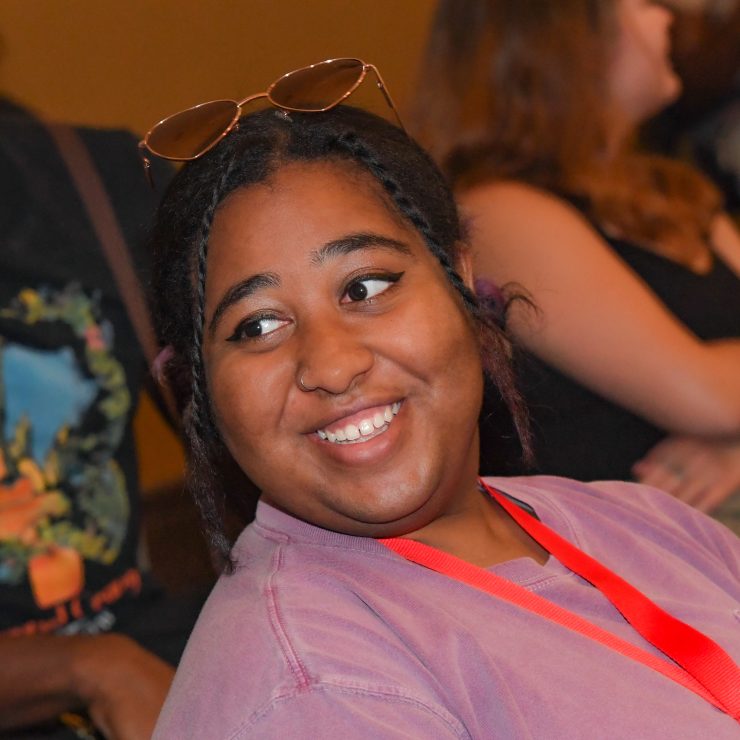The MS in Special Education — Severe Disabilities (Applied Behavior Analysis) is designed for a broad range of educators—including special educators, general education teachers, behavior specialists, instructional specialists, paraprofessionals, teaching assistants, and registered behavior technicians—who seek specialized training in special education and the evidence-based practice of applied behavior analysis (ABA).
Candidates with a background in education or human services learn how to design, implement, and evaluate evidence-based ABA practices to positively impact student learning outcomes and meet the needs of a growing population of students who require special education and behavioral support.
The program is offered part time, with two courses in each of Fall, Spring, and Summer semesters, and can be completed in two years (three years with practicum electives). The School of Education is unable to provide F-1 visa sponsorship for this program.
Questions? Please reach out and we’ll be in touch soon.
Upcoming Admissions Events
Have questions about our degree programs, the application, or financial aid and costs? Join us for an inside look at a graduate experience defined by innovation and driven by evidence-based research. Learn more about your area of interest or career path, meet some of our faculty, and connect to the Johns Hopkins School of Education community. Check out our admissions events and register for a virtual information session today.
Core Faculty
-
Rebecca Cruz, PhD
Assistant Professor
Affiliation
Center for Safe and Healthy Schools, Innovative Teaching & Leadership
Expertise
Education Policy & Politics, Social Context of Education, Special Education

-
Tamara Marder, PhD, BCBA-D
Associate Professor
Faculty Lead, Special Education and Applied Behavior Analysis ProgramsAffiliation
Innovative Teaching & Leadership
Expertise
Special Education

-
Alexandra Shelton, PhD
Assistant Professor
Affiliation
Innovative Teaching & Leadership
Expertise
Learning & Instruction, Special Education

Rebecca Cruz, PhD
Assistant Professor
Affiliation
Center for Safe and Healthy Schools, Innovative Teaching & Leadership
Expertise
Education Policy & Politics, Social Context of Education, Special Education

Tamara Marder, PhD, BCBA-D
Associate Professor
Faculty Lead, Special Education and Applied Behavior Analysis Programs
Affiliation
Innovative Teaching & Leadership
Expertise
Special Education

Alexandra Shelton, PhD
Assistant Professor
Affiliation
Innovative Teaching & Leadership
Expertise
Learning & Instruction, Special Education

Program Overview
The MS in Special Education, Severe Disabilities (Applied Behavior Analysis) is offered part time, with two courses per semester in Fall, Spring, and Summer and can be completed in two years (three years including the practicum electives).
The curriculum and instructional delivery consist of:
- Special education coursework (five courses) offered fully online or on campus.
- Applied Behavior Analysis coursework (seven courses) offered in in-person and synchronous online format — enrolled candidates have the option of attending class in person or through livestream, synchronous, online learning.*
- Optional: Choice of one to four elective practicum courses designed to meet fieldwork requirements outlined by the Behavior Analyst Certification Board (BACB). The practicum provides supervised real-world experiences in the application of behavior-analytic services in educational settings and includes both individual and group supervision. The option to enroll in practicum is limited to candidates in the Baltimore–Washington, D.C. area.
*The Association for Behavior Analysis International has verified the following courses toward the coursework requirements for eligibility to take the Board Certified Behavior Analyst® or Board Certified Assistant Behavior Analyst® examination. Applicants will need to meet additional requirements before they can be deemed eligible to take the examination.
After SOE
Graduates apply ABA practices in teaching and leadership roles as behavior analysts in schools, clinics, or residential facilities to assess, design, and implement behavior intervention plans for individuals with severe disabilities. Graduates can pursue roles as special education coordinators, administrators, or ABA consultants or even continue on to doctoral studies or research positions to advance the field.
Careers
- Behavior Specialist
- School Psychologist
- Professional Development Coordinator
- Speech and Language Pathologist
- Program Coordinator/Supervisor
“JHU is a large university with an international reputation, but our program is a small community where you know every professor. They go above and beyond to make sure you succeed. As an international student, I felt fully included.

Careers
- Behavior Specialist
- School Psychologist
- Professional Development Coordinator
- Speech and Language Pathologist
- Program Coordinator/Supervisor
“JHU is a large university with an international reputation, but our program is a small community where you know every professor. They go above and beyond to make sure you succeed. As an international student, I felt fully included.


